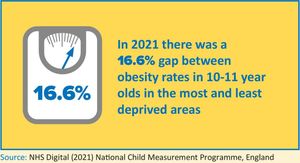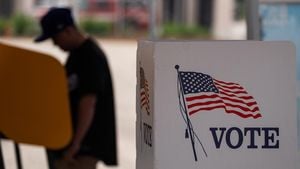Kamala Harris, the Vice President of the United States, is now making another historic bid, this time aiming for the presidency. Known for being the first woman, the first Black person, and the first individual of South Asian descent to hold her current position, she is once again at the center of the political spotlight. Having received the green light from President Joe Biden, who backed away from the race unexpectedly, Harris is off to a whirlwind start on her presidential campaign, one she hopes will lead her to the highest office.
Harris's background plays heavily on her campaign trail, often referencing her middle-class upbringing. Born on October 20, 1964, in Oakland, California, she was raised by her father, Donald Harris, who emigrated from Jamaica for his economics studies, and her mother, Shyamala Gopalan, who was not only a cancer researcher but also actively involved in civil rights. Their marriage ended when Harris was just five. Despite her upbringing, Harris often emphasizes her cultural heritage, particularly her Indian roots, which she connects to cherished childhood memories of visiting relatives back home. Her mother, though she passed away from colon cancer in 2009, remains pivotal to Harris's inspiration and worldview.
A notable figure as the first Black district attorney of San Francisco and later California’s attorney general, Harris used her legal experience to command attention during her time as a U.S. senator since 2017. Her interviews with high-profile figures during congressional hearings are still talked about today, encompassing tense exchanges with former Trump administration officials and Supreme Court nominees.
Harris's political career wasn’t always straightforward, though. When she first ran for the Senate, it seemed she was fortunate to face minimal competition, with attention on other big names like Gavin Newsom, the former San Francisco mayor turned California governor, who was pursuing his path to the governor's mansion. While Harris benefited from the favorable circumstances of 2016, her first presidential campaign quickly lost momentum. Despite initial excitement, she faced significant challenges with fundraising and voter support, even dropping out before the Iowa caucuses.
Not to be underestimated, Harris has shown resiliency. Since joining Biden's administration, she has kept her focus on various significant issues, from immigration reform to gun control. Those who know her well describe her as relentless and passionate. She has often displayed the qualities of what some might call being a "good closer." This mindset harkens back to her early political career back when she flipped the narrative to upset the incumbent DA as she built her fundraising team and connected with voters personally.
Her early days as district attorney reveal her dedication but also bring forward mixed reviews about her prosecutorial record. Scrutiny has followed her concerning her claims of courtroom experience, with some saying her record may not be as extensive as she suggests. Critics have pointed to her ambitious statements, insisting she exaggerates her legal background—a claim echoed during debates. When challenged on this front, her responses have varied, leaving some feeling misled. Written records from her time reveal only between seven to fifteen felony cases. Yet her team argues she was involved with many more, often overseeing rather than trying them personally.
The conversation around her controversial truancy laws is another area where she faced backlash. During her role as attorney general, Harris sponsored legislation aimed at increasing school attendance, which involved cranking up the pressure on parents. Some argued this approach was overly punitive, disproportionately affecting low-income families with challenges outside their control. Harris's intent to improve educational outcomes brought forth heated debates and remains tied to her legacy as she advances her presidential ambitions.
While she'll need to contend with her critics, Harris also garners support from various sectors, including progressive and feminist groups, eager for representation and change. Even her opponents have often come out to support her politically. But will the same qualities endear her to the broader electorate? Observers remain divided on her future viability.
Politically savvy candidates often take note of perceived strengths on both sides of issues. For Harris, presenting herself as tough yet relatable could prove pivotal. Many anticipate her 2024 campaign will closely mirror her early underdog run for district attorney. Harris's strategy seems reminiscent of her earlier political maneuvers, focusing on coalition building, prioritizing key demographics, and creatively engaging voters. Whether it will be enough to counterbalance skepticism about her past remains to be seen.
Halfway through her 2024 campaign, Harris acknowledges the struggles facing her administration. Issues like border security, the economy, and health care decisions are looming large as the election grows closer. Taking note of previous criticisms, Harris has hinted at a tougher stance on illegal immigration, vowing to words—though many wonder whether her staff’s historical turbulence will impact her leadership.
Looking toward November, Harris's immediate goals are clear: solidifying her base and proactively reaching out to voters, balancing empathy with decisiveness as she perceives to strike the right chord. If she is to lead the democratic vote toward her potential presidency, Harris must not only navigate scrutiny over her past administrative decisions but also amplify her vision for future progress. Amid the race, political dynamics will continue shaping her run, but her central narrative will always rest on overcoming the history she carries with her.
Having learned from past defeats and setbacks, Kamala Harris stands poised on the brink of potential history, aiming to become the first female president of the United States. With Biden's endorsement and her own prosecutorial legacy backing her, will she finally capture the public's favor? Time will tell, but for now, Harris has her eyes set firmly on the prize.



